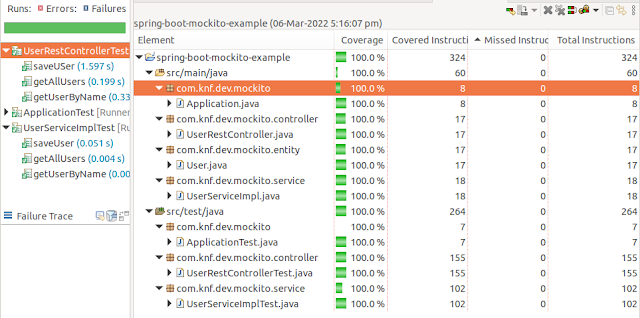Java, Helidon SE get URL query string parameters example
Hello everyone, Today, we will show you how to create a simple REST API with Helidon SE 2.5.0 and Java 17 and how to get URL query string parameters.
Quick Overview:
- Helidon SE is designed to be a microframework that fortifies the reactive programming model. Helidon SE features three core APIs to engender a microservice -- a web server, configuration, and security -- for building microservices-predicated applications.
- Helidon's web server is an asynchronous and reactive API that runs on top of Netty. The WebServer interface includes support for configuration, routing, error handling, and building metrics and health endpoints.
- The Config loads and processes configuration properties(application.properties or application.yaml) in key/value format.
- The Security class provides support for authentication, sanction, and audit.
- Query parameters are a defined set of parameters affixed to the end of a url. They are extensions of the URL that are used to avail define specific content or actions predicated on the data being passed.
Final Project Directory:
Maven [pom.xml]:
<?xml version="1.0" encoding="UTF-8"?><project xmlns="http://maven.apache.org/POM/4.0.0" xmlns:xsi="http://www.w3.org/2001/XMLSchema-instance" xsi:schemaLocation="http://maven.apache.org/POM/4.0.0 https://maven.apache.org/xsd/maven-4.0.0.xsd"> <modelVersion>4.0.0</modelVersion>
<parent> <groupId>io.helidon.applications</groupId> <artifactId>helidon-se</artifactId> <version>2.5.0</version> <relativePath>../../../applications/se/pom.xml </relativePath> </parent>
<groupId>com.knf.dev.demo</groupId> <artifactId>helidon-se-query-path-param-example</artifactId> <version>0.0.1-SNAPSHOT</version> <name>helidon-se-query-path-param-example</name> <description>Demo project for Helidon SE</description>
<properties> <version.java>17</version.java> <mainClass>com.knf.dev.demo.helidonseresthelloworld. HelidonSeRestHelloWorldApplication</mainClass> </properties> <dependencies> <dependency> <groupId>io.helidon.webserver</groupId> <artifactId>helidon-webserver</artifactId> </dependency> <dependency> <groupId>io.helidon.media</groupId> <artifactId>helidon-media-jsonp</artifactId> </dependency> </dependencies> <build> <plugins> <plugin> <groupId>org.apache.maven.plugins</groupId> <artifactId>maven-compiler-plugin</artifactId>
<configuration> <source>${version.java}</source> <target>${version.java}</target> <release>${version.java}</release> <forceJavacCompilerUse>true </forceJavacCompilerUse> </configuration> </plugin> </plugins> </build></project>MyService.java:
package com.knf.dev.demo.helidonseresthelloworld;
import java.util.Collections;import javax.json.Json;import javax.json.JsonBuilderFactory;import io.helidon.config.Config;import io.helidon.webserver.Routing.Rules;import io.helidon.webserver.ServerRequest;import io.helidon.webserver.ServerResponse;import io.helidon.webserver.Service;
public class MyService implements Service {
private static final JsonBuilderFactory JSON = Json. createBuilderFactory(Collections.emptyMap());
MyService(Config config) { }
@Override public void update(Rules rules) { rules.get("/", this::getDefaultMessageHandler); }
private void getDefaultMessageHandler (ServerRequest request, ServerResponse response) { var params = request.queryParams().toMap(); System.out.println("name: " + params.get("name").get(0)); System.out.println("email: " + params.get("email").get(0));
sendResponse(response, params.get("name").get(0)); }
private void sendResponse (ServerResponse response, String name) {
var returnObject = JSON.createObjectBuilder(). add("name", name).build(); response.send(returnObject); }}application.properties:
server.port=8080Main.java:
package com.knf.dev.demo.helidonseresthelloworld;
import java.util.logging.Logger;import io.helidon.common.reactive.Single;import io.helidon.config.Config;import io.helidon.media.jsonp.JsonpSupport;import io.helidon.webserver.Routing;import io.helidon.webserver.WebServer;
public class HelidonSeRestApplication {
private static final Logger LOGGER = Logger. getLogger(HelidonSeRestApplication.class.getName());
public static void main(final String[] args) { startServer(); }
private static Single<WebServer> startServer() {
// Load the default configuration using // the create() method. var config = Config.create();
var server = WebServer.builder(createRouting(config)) .config(config.get("server")) .addMediaSupport(JsonpSupport.create()) .build();
// Start web server var webserver = server.start();
webserver.thenAccept(ws -> { LOGGER.info("Web server started! http://localhost:" + ws.port() + "/hello"); ws.whenShutdown().thenRun(() -> LOGGER. info("Web server is down!")); }).exceptionallyAccept(t -> { LOGGER.severe("Web startup failed: " + t.getMessage()); });
return webserver; }
private static Routing createRouting(Config config) {
var helloService = new MyService(config);
return Routing.builder()
.register("/hello", helloService).build(); }}Local Setup and Run the application:
Step1: Download or clone the source code to a local machine. - Click here
Step2: mvn clean install
Step3: Run the Main java application
Console output:
name: knowledgefactory
email: knowledgefactory@knf.dev









